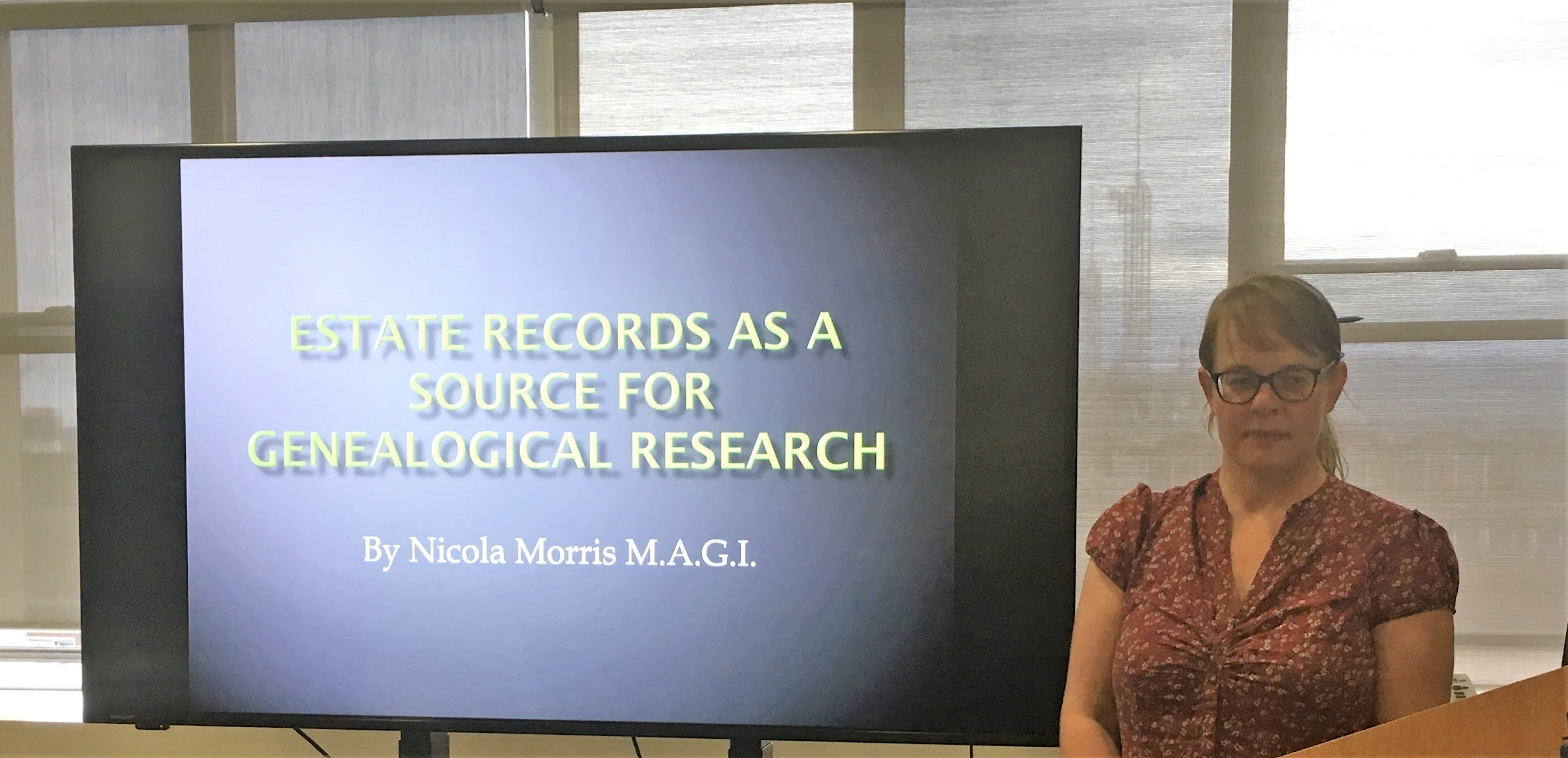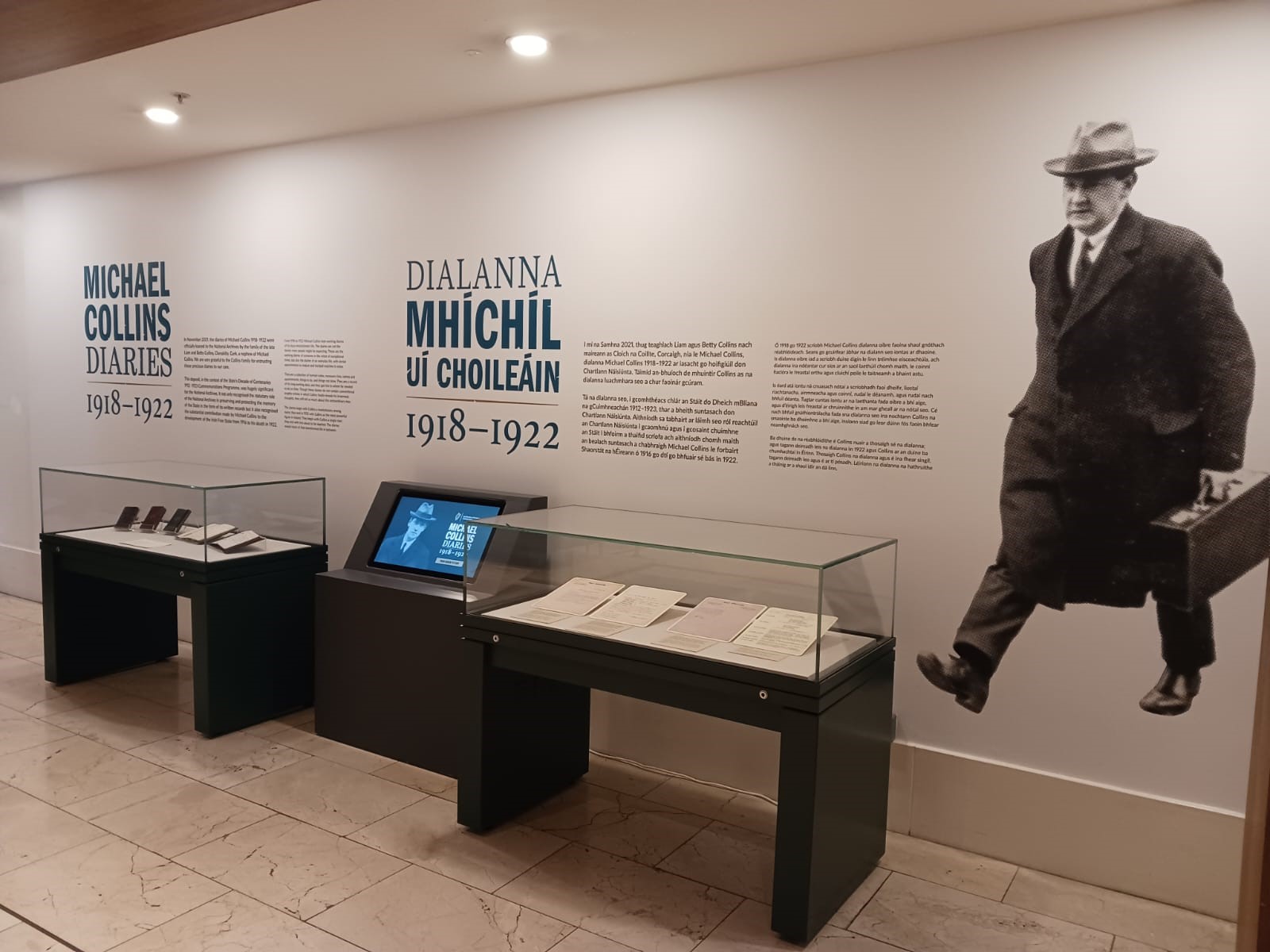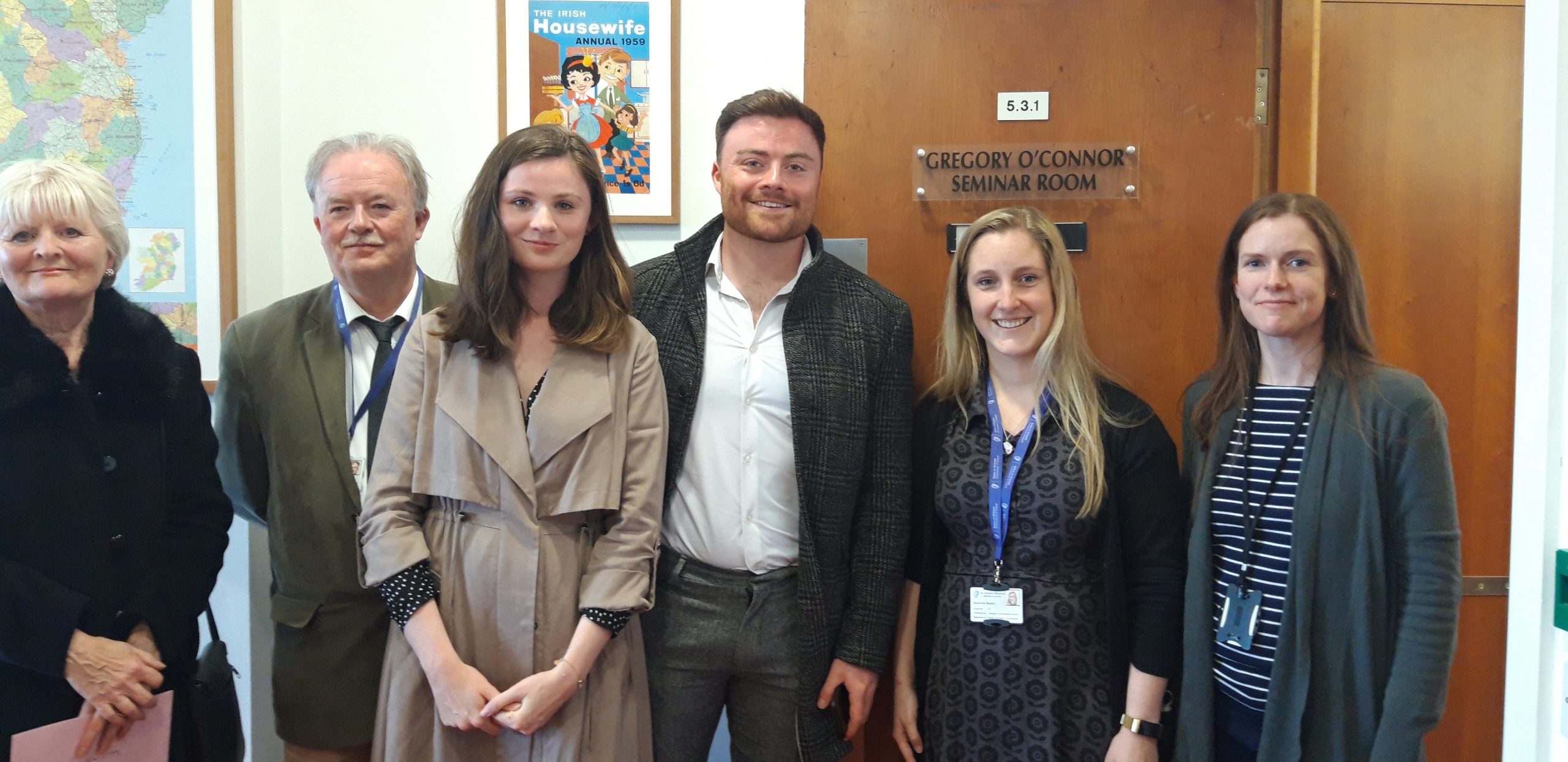Behind the Scenes
Behind the Scenes: Lecture on Estate Records for Genealogy

Nicola Morris, a professional genealogist and member of the Accredited Genealogists of Ireland, gave a wonderfully rich and informative talk at the National Archives of Ireland on 11th June. Nicola was speaking about the use of Estate records as a source of genealogical information and it was evident that there was a keen interest in this topic judging by the need for extra chairs in the room!
When it comes to Irish genealogical research many of us are all too aware of the many gaps that exist in the records, however, the biggest take away from this talk was that estate records can be a wonderful trove of genealogical information that does not exist anywhere else, in fact, most of these records pre-date traditional sources.
Nicola began by giving a brief history of the patterns of land ownership in Ireland between 16th– 20th century before turning to the estate records themselves, outlining what sources are available and how best to use them. Understanding how an estate was managed and who the main figures were, especially the land agent, is key to unlocking who these individuals might have interacted with and what type of records they likely kept. Fun fact, this is where the term “Estate Agent” derives from.
The following examples illustrate the usefulness of these records. The Wentworth-FitzWilliam Estate in county Wicklow kept detailed records of who was on its land by carrying out a type of census of the tenants in the years 1827, 1839, 1848, 1850, 1860, and 1868. They include names and ages of tenants and their families and is a wonderful snapshot of the estate over several decades. Many landlords or land agents took a paternalistic attitude to their tenants and required them to make requests for varied reasons such as to request for assisted emigration, arbitration of a dispute or more simply, for relief. Where these records survive they can provide colourful accounts with names and personal details, such as that of the Wandesforde Estate in county Kilkenny.
The Ejectment books available in the Crown and Peace records at the National Archives of Ireland give names of tenants that were in arrears on their rent and were being threatened with eviction as well as those were actually evicted. Also of interest is the Land League testimony accounts discovered by Sean McManamon in the New York Public Library which have been transcribed in the 2004-5 volume of the ‘Cathair na Mart’ journal. These are personal accounts of ill-treatment of tenants in county Mayo during the tumultuous period of land agitation and include names and personal information, these accounts may have been used as propaganda to help the cause of the Land League in America.
Some of the Estate records identified as being of interest to genealogical research include:
- The Civil Survey and Books of Survey and Distribution
- Rent Rolls: Dating from late 17th century
- Estate Maps
- Ejectment Books
- Tenants Application Books
- Account Books
- Employment Books
- Tithe Books
- Tenure Books
- Observations
- Landed Estate Court Rentals
Along with identifying specific sources, Nicola peppered her talk with useful tips and provisos that have no doubt been gleaned over the course of her extensive experience in the field:
- It is important not to assume records for a particular land-owning family will all be in the one place, for example, if the bulk of a landowner’s estate was in the Republic of Ireland but there were other lands in Northern Ireland, it’s worth looking in repositories both sides of the border and perhaps even in the UK.
- It is important to understand that land ownership is constantly changing and just because there is a record of someone owning land in the year 1850 it does not mean that they owned it the subsequent or following years. The very same issues that unfold today such as inheritance or the rise or fall in the fortunes of a family, affected land ownership in the past.
- It is important to persevere when trying to locate information and to be creative when using these records.
Overall, this was a very useful and targeted talk from a highly experienced genealogist who was able to give a broad overview as well as drawing attention to particular and lesser used sources all whilst quoting illustrative anecdotes from memory. It is clear that Estate records have not been fully exhausted by many family history researchers and undoubtedly this talk will have spurned on many to continue their exploration.
Further Sources:
National Archives of Ireland, Guide to family & landed estate collections
National Library of Ireland, Irish Landed Estates, Rentals and Maps
NUI Galway Landed Estates database
National Archives (UK), Landed Estates
Deirdre O’Connell, Archivist


